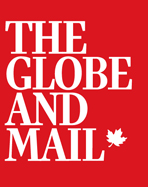European Russophobia and Europe’s Rejection of Peace: A Two-Century Failure
Europe has repeatedly rejected peace with Russia at moments when a negotiated settlement was available, and those rejections have proven profoundly self-defeating. Read more
 John Ibbitson
John Ibbitson
He is a lion in autumn, weaker than in his prime, but still a force of nature. He faces his fifth, and perhaps final, test as national leader. But in a way, the result won’t matter. Whether Stephen Harper wins or loses the general election of October 19 is moot. He has already reshaped Canada. And Canada will not easily be changed back.
He has made the federal government smaller, less intrusive, less ambitious. He has made Canada a less Atlantic and a more Pacific nation.
He has brought peace to a fractious federation. Under his leadership, Canada speaks with a very different voice in the world. He has also given us a very different politics – more intensely partisan, more ideological, more polarizing. This, too, is unlikely to change, now that people are used to it.
And then there is Harper himself. Slow to trust and quick to take offence, brooding and resentful at times, secretive beyond reason, perhaps the most introverted person ever to seek high office in this country, he has nonetheless defeated a plethora of challengers to give Canada its first ever truly conservative government, with profound consequences for the country. He has brought the West for the first time fully into the life of the nation, while making his Conservatives the only conservative party in the developed world broadly supported by immigrants. And he has lasted a decade in office, no mean feat in this democracy or any other.
But despite those many years in the public eye, who he is, and why he does what he does, remains elusive– even though such an understanding is crucial for voters who may be unsure of how to cast their ballot. How did Steve Harper become Stephen Harper?
The article’s full-text is available here